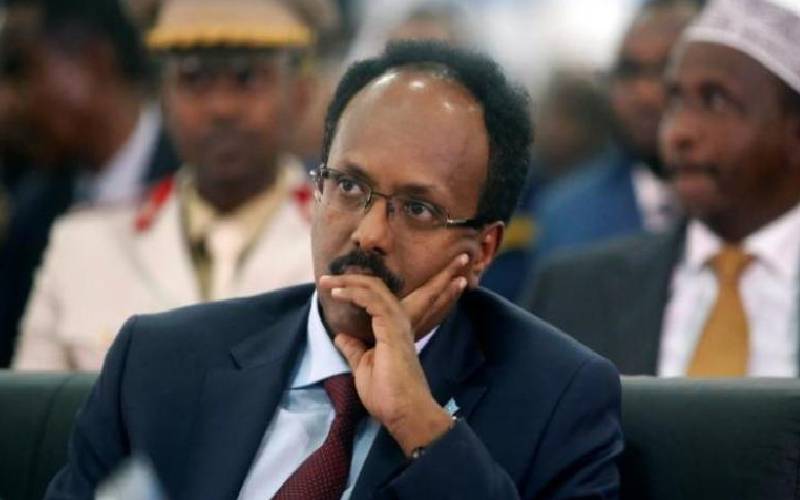×
The Standard e-Paper
Fearless, Trusted News

Somalia President Mohamed Farmaajo in Mogadishu on February 22, 2017. [Photo, Courtesy]
The Kenya-Somalia legal sea borderline battle has taken social media by storm, causing a diplomatic tsunami in Nairobi and Mogadishu as the quarrel over a believed oil rich triangle of ocean blows onshore onto both Eastern African capitals.